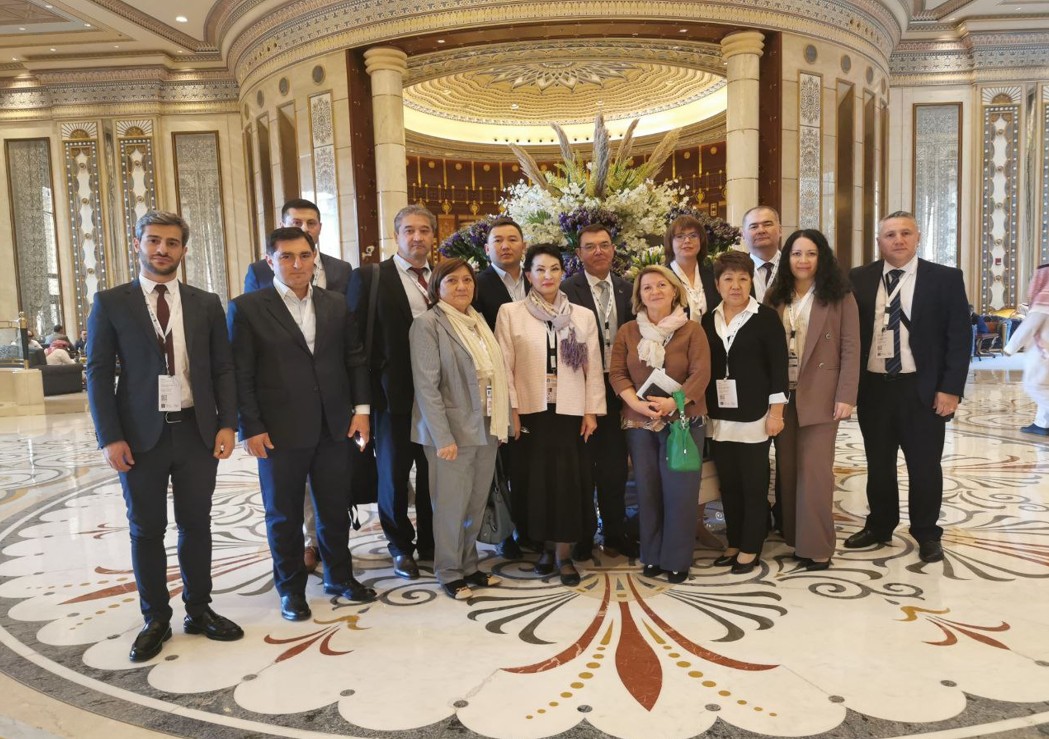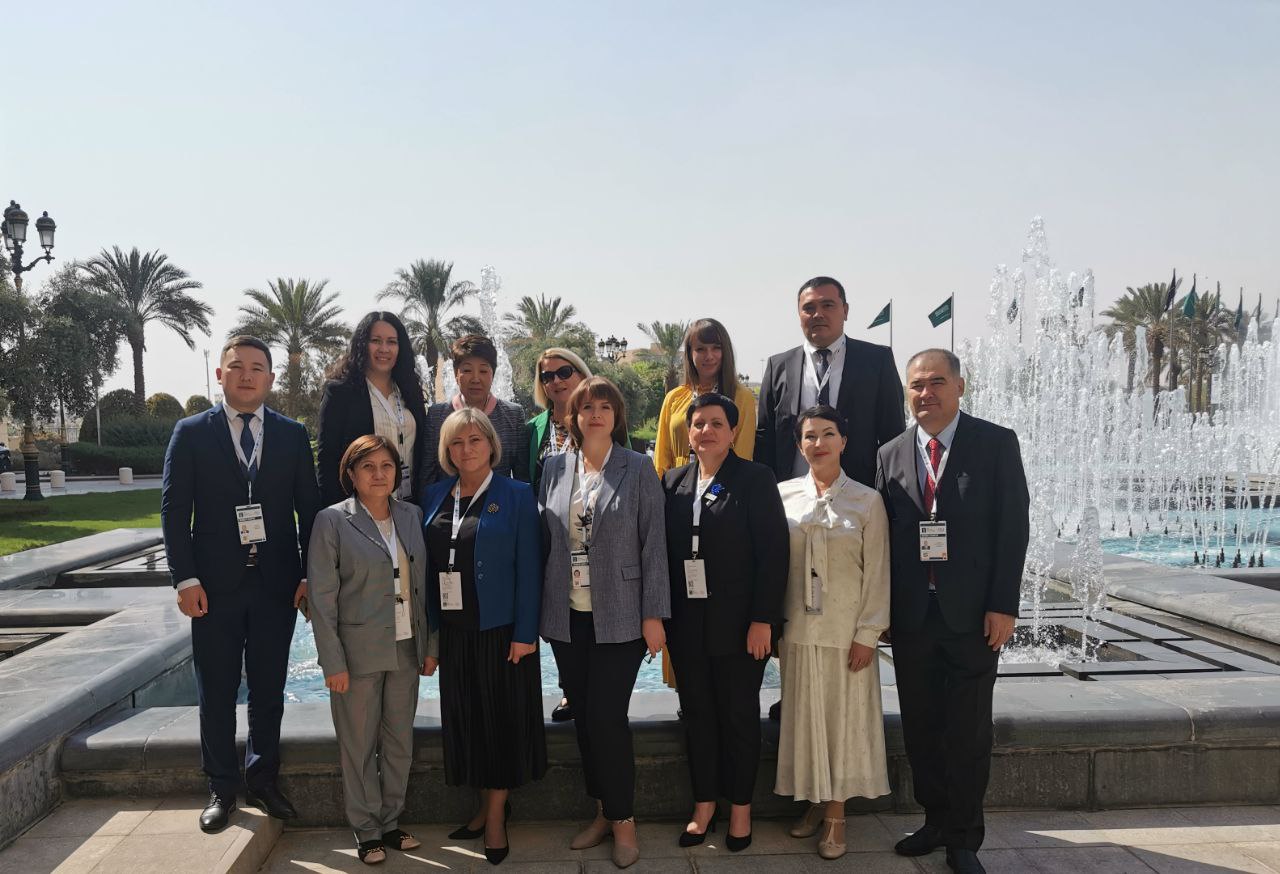
The Universal Postal Union (UPU) successfully concluded its fourth UPU Extraordinary Congress, held in Riyadh, Saudi Arabia, from 1 to 5 October 2023.
This meeting of postal commissioners produced historic decisions that will impact the global postal sector, including ground-breaking agreements to open up to a wider range of postal sector stakeholders, climate change action targets and plans to modernise postal financial services, namely:
Strengthening broader sector participation
To encourage the development of a truly connected, efficient and universal postal service for all, UPU members have adopted a number of proposals that will lead to deeper UPU engagement with the wider postal sector - postal companies and partners outside the UPU's network of government-designated postal operators.
Climate action
Congress approved an unprecedented "green package" setting out voluntary climate change action goals for the postal sector. These goals aim to reduce the postal sector's global greenhouse gas emissions and build capacity for climate change action. The package also establishes a framework for climate action, focusing on mitigation, adaptation and climate finance supported by a specialised climate fund. Germany and the United Arab Emirates have pledged to provide some financial support to the initiative.
Transforming postal financial services
Congress also set the stage for changes in postal financial services, with a focus on modernisation and interconnectivity with the wider postal financial services stakeholders. This will include the evolution of the UPU's legal framework for postal payment services, as well as the possible creation of an advisory knowledge centre, subject to extra-budgetary funding to ensure future-ready services.
Increased budget
In a historic decision, UPU member countries decided to increase the UPU's regular budget ceiling to provide the organisation with additional financial resources.
As a result of the UPU Extraordinary Congress, member countries adopted proposals to the UPU's fundamental acts, which were signed by representatives of UPU member countries on the final day of the Congress:
- Protocol to the General Regulations on the expansion of the UPU's membership;
- The First Additional Protocol to the Universal Postal Convention;
- Additional Protocol to the agreement on postal payment services.
A total of 120 UPU Member-States were represented at the UPU Extraordinary Congress.
The UPU Congress was attended in hybrid format by representatives of the Communications Administrations of the Regional Commonwealth in the field of Communications: the Republic of Azerbaijan, the Republic of Armenia, the Republic of Belarus, the Republic of Kazakhstan, the Kyrgyz Republic, the Russian Federation, the Republic of Tajikistan and the Republic of Uzbekistan, as well as representatives of the RCC Executive Committee.

During the days of the Congress, regular meetings and consultations of the delegation of the Regional Commonwealth in the field of communications were held under the leadership of Natalia Gordeyenko, Chair of the Working Group on the Work with the UPU, Deputy Minister of Communications and Informatization of the Republic of Belarus.

The working meetings included discussion of the position of the RCC member countries on the documents submitted to the Congress, as well as an exchange of views on the general directions of development of the RCC's activities based on the results of the decisions taken at the 4th UPU Extraordinary Congress.
The 4th Extraordinary Congress included the opening of the UPU 2023 High-Level Strategic Summit.
The summit discussed the following topical issues:
- Strengthening the foundations: a single postal territory for economic and social growth.
- How can the postal sector, with its extensive infrastructure, social potential and delivery capabilities, raise its profile and continue to deliver value?
- What are the biggest challenges for postal customers (whether ordinary citizens or businesses) when it comes to the sector's core services, and how can these be addressed?
- What opportunities exist to diversify the use of this infrastructure, including to meet national social objectives in the areas of health, education and financial inclusion?
- What role do data, new technologies (e.g. blockchain, artificial intelligence, robotics) and innovative solutions (e.g. postal machines and the Internet of Things) play in improving the efficiency and convenience of citizens in the postal sector?
On the last day of the Extraordinary Congress, the UPU published its first State of the Postal Sector report, which, using a wealth of UPU postal data, draws a clear link between the maturity of the postal sector and economic sustainability.
The report includes an index of postal development worldwide, with data from 172 countries.
Awards were presented to those with the highest overall level of postal development (Austria, France, Germany, Japan and Switzerland), those with the greatest year-on-year improvement in postal development (Oman, Slovenia and Uzbekistan) and those with the highest level of development in their region (Brazil, Estonia, Ethiopia, Morocco and People's Republic of China).
The UPU also honoured the winners of its 52nd International Letter-Writing Competition, for which children were asked to write a letter to someone explaining the superpowers they would need to fulfil their mission to make roads safer for all children.
The competition was organised in collaboration with the United Nations Road Safety Foundation.
Claire Gaki, 13-year-old, from Kenya, won a gold medal for her letter, which she read out to delegates at the final plenary session of the Congress.
A silver medal was awarded to 11-year-old Matilde Magalhães Da Silva from Portugal, and 12-year-old Dao Huong Duy from Viet Nam won a bronze award.















